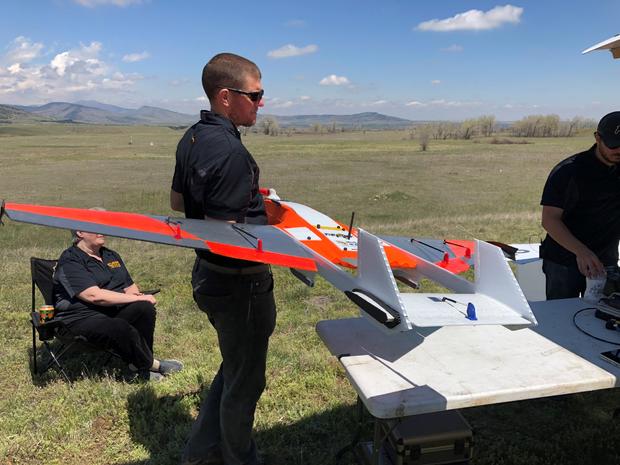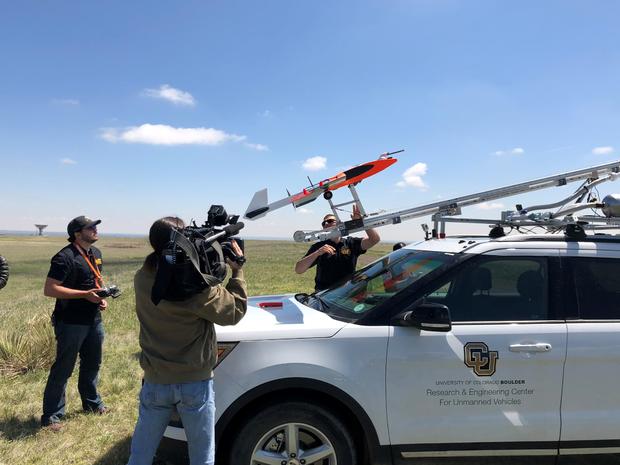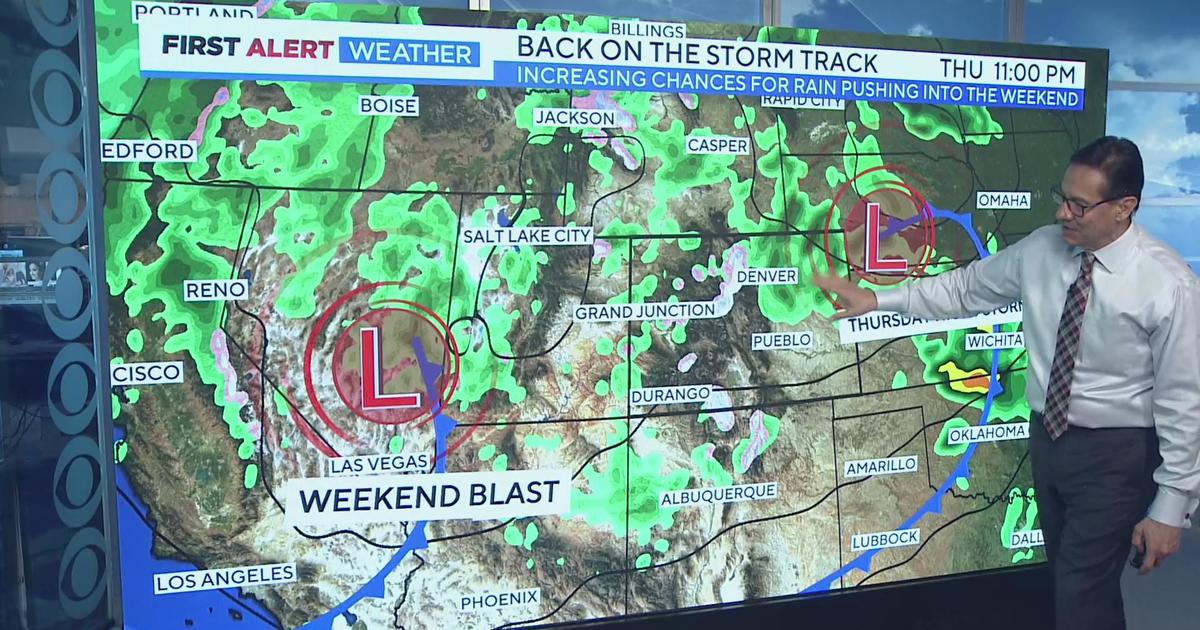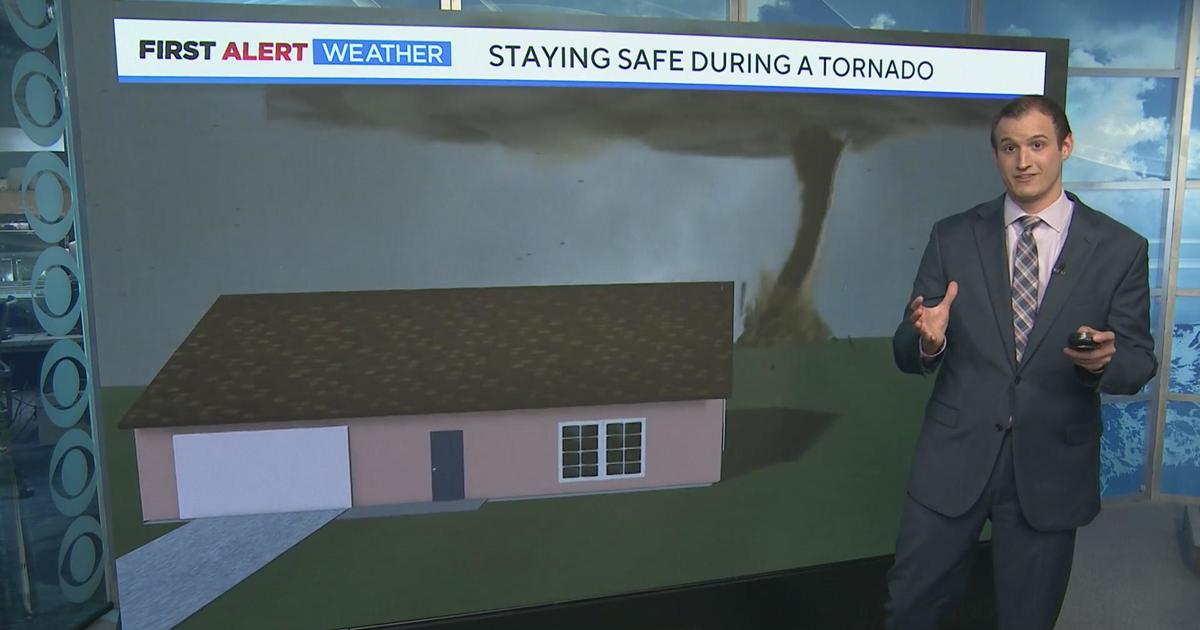CU Boulder Engineering Collaborates To Study Tornadoes With Drones
DENVER (CBS4) - Dozens of scientists and engineers, including a group from CU Boulder, will collaborate this spring and summer to learn more about supercell thunderstorms that produce tornadoes. They'll be using a fleet of drones to chase tornadic thunderstorms across the Great Plains. Scientists want to know why some supercell thunderstorms end up producing tornadoes while others do not.
The project is called TORUS, which stands for Targeted Observation by Radars and UAS of Supercells. It involves more than 50 researchers utilizing 20 tools to measure the atmosphere, including unmanned aircraft systems, mobile radars and NOAA's P-3 "Hurricane Hunter" aircraft. Fieldwork will be conducted May 15 to June 26 throughout a 367,000-square-mile area of the Central Great Plains from North Dakota to Texas and Iowa to Wyoming and Colorado.
A unique aspect of TORUS is the fact that a fleet of drones will be used to take mid-air weather observations. Three drones will fly around each storm. The drones will be launched from the top of chase vehicles so that scientists don't waste valuable time looking for a launch site when a supercell thunderstorm is developing rapidly.
"We are flying with special permission from the FAA up to 2,000 feet for this project," said Eric Frew, a professor at CU Boulder. Drones will fly in an area free of heavy rain and hail below the cloud deck.
TORUS is Funded by the National Science Foundation and is led by the University of Nebraska-Lincoln. Partner institutions are NOAA National Severe Storms Laboratory, NOAA Office of Marine and Aviation Operations, University of Oklahoma Cooperative Institute for Mesoscale Meteorological Studies, Texas Tech University, the University of Colorado-Boulder, National Centers for Atmospheric Research and Penn State University.





